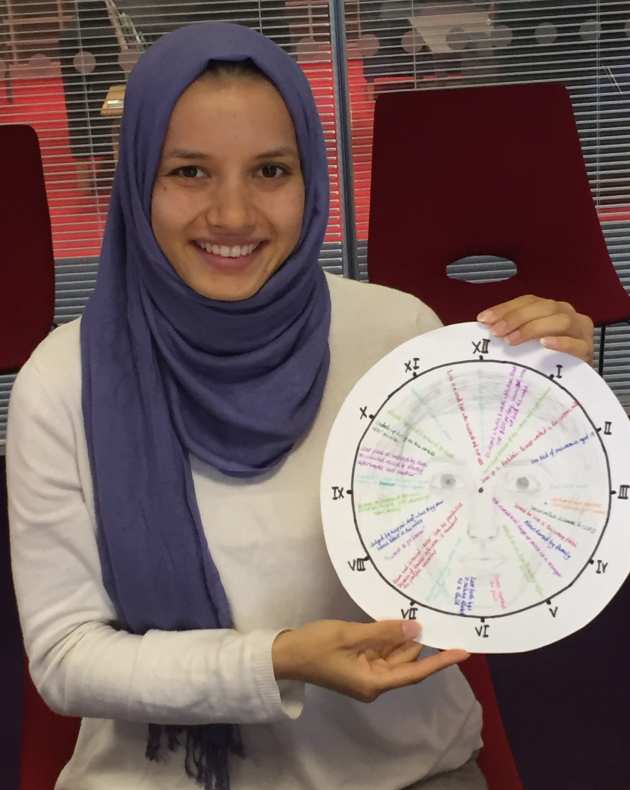An innovative module for final-year medical students involved bespoke teaching from Giskin Day, Principal Teaching Fellow in the Centre for Languages, Culture & Communication.
The module, devised and led by Dr Ros Herbert in the Department for Primary Care, consisted of a series of eye-opening placements for students. They shadowed GPs working with the homeless, refugees and other marginalised sections of the community. They even spent a day observing the challenges of delivering healthcare in Wandsworth Prison.
This was an emotionally challenging module, and Giskin’s role was to help students process their responses to their involvement on their placements. Students created an artwork in any medium that captured an aspect of their experiences. To prepare them for this, the students visited a current artwork exhibition with Giskin that showcased social responses to health inequalities. They were then encouraged to process their own responses to their placements in an ethical way. This meant that they do not merely appropriate the stories of the hardships of others, but respected that people own their own stories to which this module affords them a privileged insight.
The gallery visits and the artwork that students create is shown in a blog called Temoignage - a term used by Medicins Sans Frontieres to describe a willingness to speak out about what has been witnessed.
Suffering has been stronger than all other teaching
Quote from a student
"It was good to try and connect with your creative side. It was a way of coping with the stresses. Just to use a different part of your brain was therapeutic."
, YouTube, Vimeo, Panopto/default.jpg)